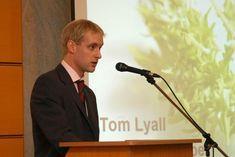
In September, pressure from the Scandinavian markets caused a fair degree of panic among grape producers and exporters fearful that the use of sulphur dioxide pads could be outlawed by the European Commission.
European fresh produce trade representative body Freshfel met with Commission officials and representatives of member states to clarify the situation of active ingredient sodium metabisulphite, which is used extensively on table grapes during transport and storage, to inhibit the development of botrytis.
The concerns arose after Norway’s food standards agency challenged the validity of the ingredient’s residues on grapes entering the country. Non-government pressure groups and other Scandinavian countries, notably Denmark, moved the debate on to the EC. A fierce defence of the use of sulphur pads was mounted by producing countries, such as Greece, Spain, Italy and France, while exporters in third countries that stand to lose most were alerted to the potential crisis and made their views known.
Representatives of the trade in major importing countries such as the UK, the Netherlands and Germany took proactive stances to work towards a solution for the trade. European producers would be affected too, as stored fruit would effectively be prohibited.
The worst-case scenario was, and is, that a ban would leave Europe without a large proportion of its table grapes. A total ban could significantly restrict trade flows and consumer choice, at least until a viable alternative to sulphur pads is widely available.
“Freshfel Europe provided a loud voice on behalf of the industry to state the problems surrounding a potential EU ban and indeed to fight for the continued use of this treatment,” says the secretariat’s Tom Lyall.
Freshfel recommended a maximum residue level of 10mg/kg, which is line with existing international practices and regulations. The continued use of sodium metabisulphite would require the addition of table grapes to food additives legislation (Directive 95/2/EC) controlling the use of SO2. Freshfel is collating the necessary information to secure a tolerance.
The EC said in September that the issue of the use of SO2 on grapes has arisen too late to be included in the impending amendment to the EU directive regarding the use of food additives.
Well, if no news is good news, then count this article as good news. “As yet, there has been no further comment from the Commission on whether a ban is likely or not,” Lyall said as the FPJ Supplement went to press. “But member states as a rule are continuing to allow use of the pads, and applying a tolerance level of 10mg/kg, which is pretty much what we expected.”
Freshfel has received official confirmation from some member states of their tolerant stance, including interestingly enough the Norwegians, who sparked the issue into life in the first place.
“They could see no reason why they should be at a commercial disadvantage until firm confirmation has been given either way by the Commission,” says Lyall. “There is clear evidence in the mountain of literature we have available to us that a residue of 10mg/kg of SO2 would have no harmful effect at all on consumers. We have continued to meet with delegations from around the world about the matter and we still believe that the most sensible route would be for the EC to officially recognise the tolerance level of 10mg/kg in new legislation.”
As the average detected residue level for SO2 on grapes sits at around 3mg/kg and the maximum is very rarely higher than 5mg/kg, most companies, and indeed governments, have been prepared to adhere to what is effectively a footnote in existing legislation and maintain tolerance at 10mg/kg.
“We will have to wait and see what happens in 2005, but when the modification is made to the 95/2 legislation, we will be looking for formal recognition of the level we recommended, based on the wealth of scientific information” says Lyall.
“As sulphur pads still represent the most cost effective means of ensuring post-harvest quality of grape during the distribution process, and there is enough pressure and scientific evidence to show that SO2 poses no health risk and therefore shouldn’t be banned, we hope that any decision does not increase the cost burden on the grape industry.”



